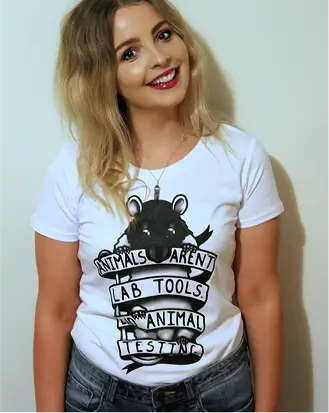Stronger laws
We’re asking the NZ Government to commit to phasing out the requirements for animal testing in NZ law.
There are still legal requirements for animal testing in NZ law. Thanks to the support of LUSH, we were able to commission a legal review of the current requirements for animal testing in NZ law, so now we know exactly what outdated laws we need to change first.
The legal requirements for the use of animals involve testing veterinary medicines, human medicines, human medical devices and hazardous substances. Find out more about the requirements for animal testing in NZ here.
These are holding up progress. They leave no room for validated animal-free methods to be used.
This is especially important now that the United States is in the process of updating its own rules through amendments to the Federal Food, Drug, and Cosmetic Act.1 With the United States dropping requirements for using animals in many areas of science, New Zealand, again, needs to catch up.






